 |
 |
|||||
|
|
|
|
|
|
|
|
|
|
|
|
|
|
|
|
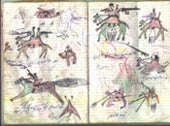 |
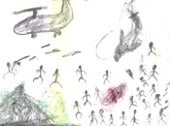 |
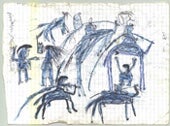 |
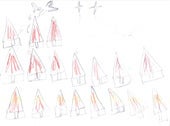 |
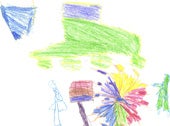 |
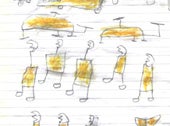 |
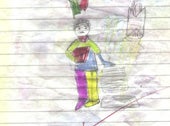 |
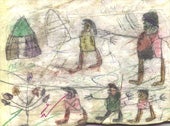 |
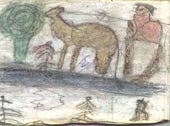 |
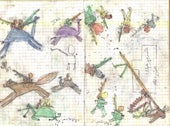 |
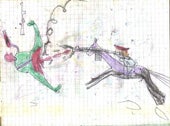 |
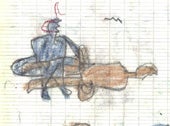 |
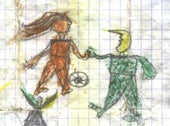 |
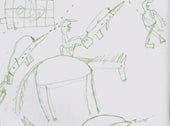 |
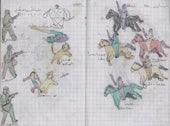 |
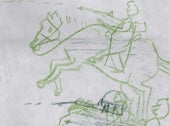 |
Gamal, Age 12, and Anwar, Age 10
Mohammed, 8, could not draw. He had never been to school. He could not read
or write his name. These drawings were made by his brother and cousin. In
the
smallest voice, he said, “I am still scared of the Janjaweed. I remember
the guns and the planes.” The last thing he said to Human Rights Watch
researchers was, “Darigi jugi,”—“I
need to go back home.”
